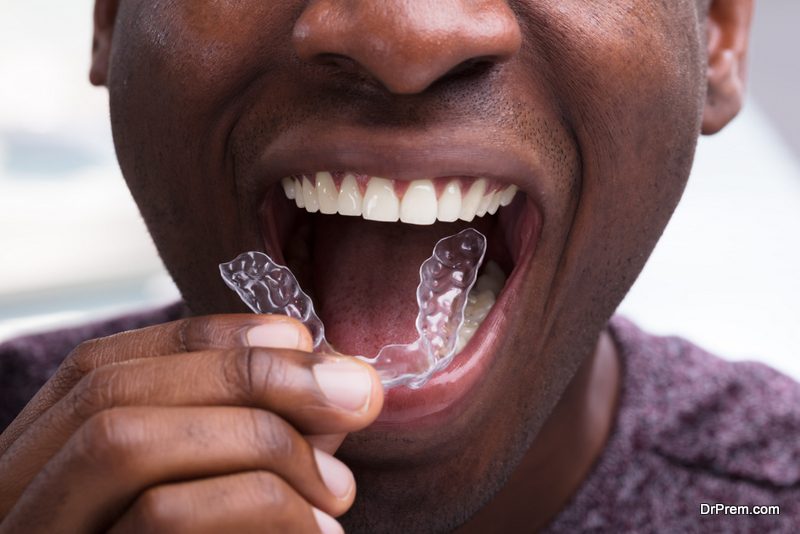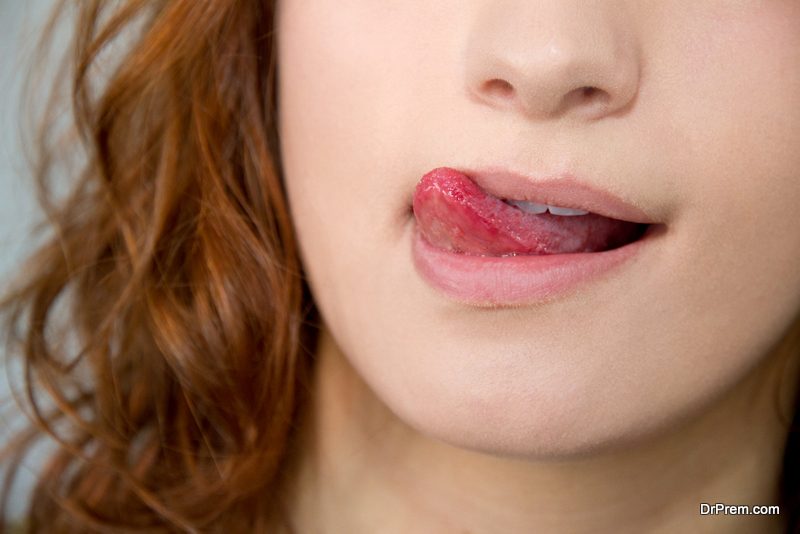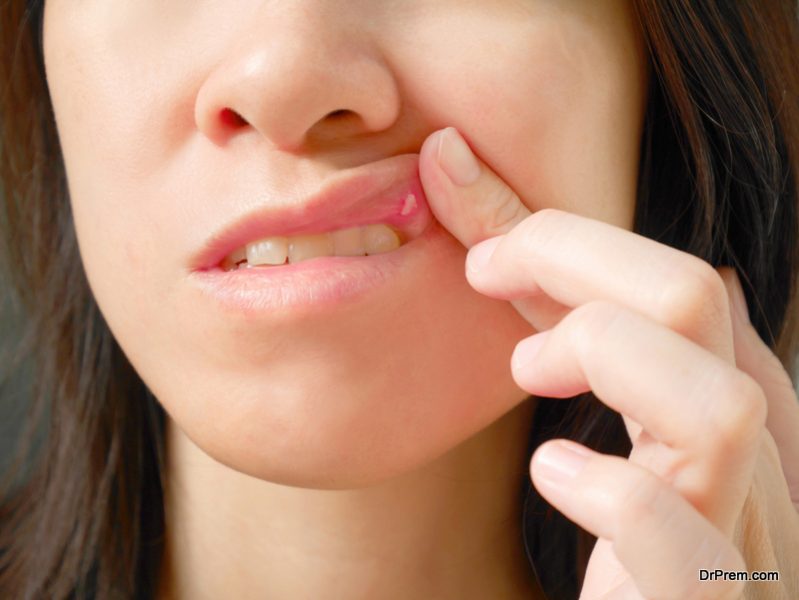In today’s hectic, on the go lifestyle, stress is known to be as the common culprit for many dangerous health conditions, like cardiovascular disorders, metabolic diseases, etc. However, many few people might not be knowing about the direct effect of stress on bad oral health.
Introduction
 By definition, stress is noted as body’s adjustment or response to any forceful change; this response can either be emotional, physical as well as mental. The stress can either be experienced through the environment or through the body or through thoughts. Various positive, as well as negative effects of stress, have been noted so far by the experts; however, harmful effects on bleeding gums were most underestimated.
By definition, stress is noted as body’s adjustment or response to any forceful change; this response can either be emotional, physical as well as mental. The stress can either be experienced through the environment or through the body or through thoughts. Various positive, as well as negative effects of stress, have been noted so far by the experts; however, harmful effects on bleeding gums were most underestimated.
Effects of stress on health

The human body is structured to react to the stress, experienced by it. The positive effect of stress is keeping us alert as well as motivated to cope up with it; whereas the stress can have a negative impact on health when it is being experienced continuously without in between relaxation or relief.
The human body has been trained to deal with the effects of stress to a certain extent with the help of its inherent autonomic nervous system. The type of response body experience when in stress is identified to as a “fight and flight response”; which is activated in case of emergency. However, the response can turn fatal, if it remains in an activated state for a prolonged period of time.
A continuous stress can give rise to a condition known to be as the distress, which is a negative stress reaction that is known to disturb the body’s equilibrium. The effect of distress can lead to a headache, stomach upset, increased blood pressure, sexual dysfunction and chest pain. Experts have as well suggested some emotional issues like depression, mood swings, panic, anxiety as negative effects of stress.
The dental dangers of stress

The stress and the bad oral health can entirely be a new ballgame for many of us, and it is highly crucial for us to identify and work accordingly to reduce the dental issues associated with the effects of stress.
Some of the commonly identified dental issues that can be connected with the continuous stressful condition experienced by our body can be noted herewith:
1. Bruxism
 This is a condition experienced by us, when we are in stress; wherein we tend to grind our own teeth leading to their accidental damage. If the condition is being diagnosed, a night guard can be suitably prescribed to protect the jaw from physical damage.
This is a condition experienced by us, when we are in stress; wherein we tend to grind our own teeth leading to their accidental damage. If the condition is being diagnosed, a night guard can be suitably prescribed to protect the jaw from physical damage.
2. Canker sores
Canker sores are another commonly identified effects of stress. Although harmless, they can be quite painful at times and need to be rectified immediately as one of the possible risk factors of a number of other health issues, like cardiovascular disorders.
3. Dry Mouth
 Dry mouth is commonly linked with the stress, as our mouth is not able to produce the required quantity of saliva under stressful condition. Moreover, experts have also pinpointed a dry mouth to be one of the most common side effects of consumption of drugs that are most prescribed to treat mental illness, like depression.
Dry mouth is commonly linked with the stress, as our mouth is not able to produce the required quantity of saliva under stressful condition. Moreover, experts have also pinpointed a dry mouth to be one of the most common side effects of consumption of drugs that are most prescribed to treat mental illness, like depression.
4. Burning mouth syndrome
A burning sensation on the inside organs of the mouth, such as tongue, lips, gums etc. can be attributed to the stressful condition experienced by our body.
5. Lichen planus
 Presence of white lines, mouth sores and sometimes even exhibition of mouth ulcers are being commonly reported, especially in case of a person who is undergoing a lot of emotional as well as physical stress. Scientists, as well as some medical experts, have identified that lichen planus is a kind of a viral infection, and is noted to be as one of the effects of stress.
Presence of white lines, mouth sores and sometimes even exhibition of mouth ulcers are being commonly reported, especially in case of a person who is undergoing a lot of emotional as well as physical stress. Scientists, as well as some medical experts, have identified that lichen planus is a kind of a viral infection, and is noted to be as one of the effects of stress.
6. TMJ
TMJ also is known to be as the temporomandibular joint disorder. The condition gets aggravated mostly due to tooth grinding, dental trauma, and dry mouth issue. Some other factors such as depression, anxiety are also being found to be responsible for the issue.
7. Gum Disease
 Gum disease can also be noted as one of the measure effects of stress. As discussed, earlier stress affects our immune system and increase the susceptibility to many infectious diseases, gum disease is one of them.
Gum disease can also be noted as one of the measure effects of stress. As discussed, earlier stress affects our immune system and increase the susceptibility to many infectious diseases, gum disease is one of them.
Scientists have as well noted that when we are under stress, we tend to eat more sweet or carbohydrate-rich food; due to secretion of happy hormone post-consumption. However, we should not forget at the same time that this carbohydrate-laden food is responsible for a number of oral issues including tooth decay and temporomandibular joint disorder.
Other risk factors for stress and oral health
 It is now being quite clear that stress and oral diseases are interlinked, hence people who are under stress should never ignore oral hygiene routines. While analyzing yet another significant effect of stress on dental health, scientists could evaluate that with increased stress our ability to tolerate pain is severely compromised, and hence tooth pain may give rise to other neurological issues.
It is now being quite clear that stress and oral diseases are interlinked, hence people who are under stress should never ignore oral hygiene routines. While analyzing yet another significant effect of stress on dental health, scientists could evaluate that with increased stress our ability to tolerate pain is severely compromised, and hence tooth pain may give rise to other neurological issues.
How to minimize the effects of stress
Undoubtedly stress has been an important part of our lives, but we need to also learn about how to tackle the issue in a better way to stay fit and healthy. Some of the useful tips mentioned herewith can be helpful to deal with day to day stress.
Avoid poor diet habits
 It is always beneficial to avoid consumption of caffeine, alcohol, and nicotine in order to stay fit and stress-free; as they act as a neuronal stimulator to increase the level of stress than to reduce the same.
It is always beneficial to avoid consumption of caffeine, alcohol, and nicotine in order to stay fit and stress-free; as they act as a neuronal stimulator to increase the level of stress than to reduce the same.
Indulge in physical activity daily
 As a matter of fact, the body reacts to the fight and flight response by stimulating secretion of certain relaxing hormones identified to be as adrenaline and cortisol. Secretion of these hormones helps us to protect our bodies from sudden trauma. However, scientists have elaborated that in the modern age people are living under continuous stress and mental trauma; and hence, physical exercise can be an appropriate surrogate to deal with excessive stress hormones.
As a matter of fact, the body reacts to the fight and flight response by stimulating secretion of certain relaxing hormones identified to be as adrenaline and cortisol. Secretion of these hormones helps us to protect our bodies from sudden trauma. However, scientists have elaborated that in the modern age people are living under continuous stress and mental trauma; and hence, physical exercise can be an appropriate surrogate to deal with excessive stress hormones.
Apart from these noted, some of the other precautions can also be helpful, such as:
- Getting more sleep
- Trying other relaxation techniques, such as music, dancing etc.
- Increasing social quotient
- Time management


